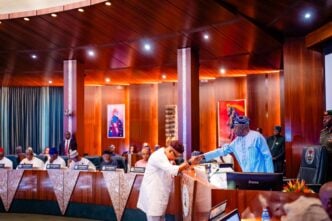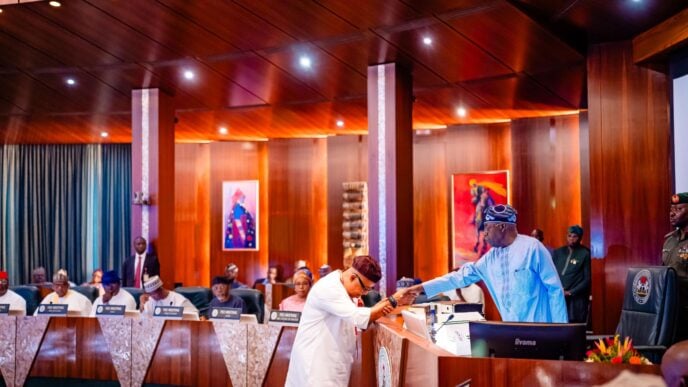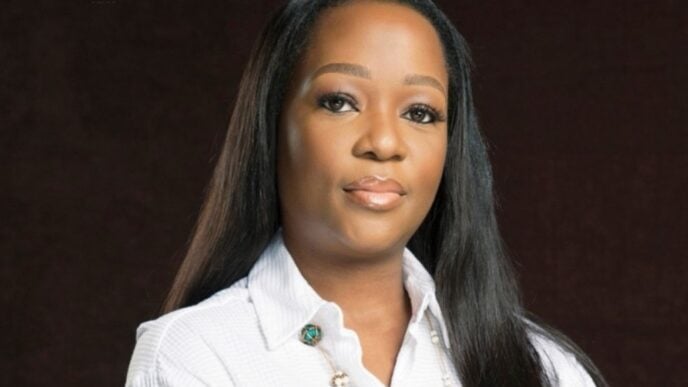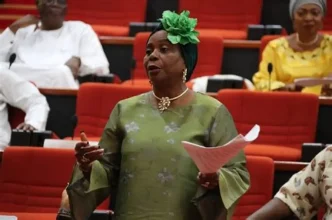Tunji Alausa, minister of education
The National Drug Law Enforcement Agency (NDLEA) and the ministry of education will partner to conduct compulsory drug integrity tests for students of tertiary institutions.
They will also review the current secondary school curriculum to include drug education.
The agreement was reached on Wednesday when Buba Marwa, NDLEA chairman, led a delegation of his management team to a meeting with Tunji Alausa, the minister of education, in Abuja.
In a statement, Femi Babafemi, NDLEA spokesperson, said Marwa commended the minister for his proactive approach to his job, adding that the fight against illicit drugs is a fight for the souls of the Nigerian youth.
Advertisement
“The drug scourge, as we all know, is very high in Nigeria. So, we’re actually fighting for the souls of our children. Now, we also know that drug use is exacerbating criminal activities. That is, the Boko Haram, the terrorism, banditry, and so on,” he said.
“We know that without drugs, they wouldn’t be able to do what they are doing, because they wouldn’t do all these criminal activities in their right senses.
“Now, through law enforcement action, we have continued to deal mortal blows to the drug cartels. We know that through the seizures, arrests, convictions, and assets forfeiture, we’re doing our best.
Advertisement
“Supported by President Bola Tinubu, within the last two years, we have arrested 40,887 criminal elements, gotten 8,682 convicted and seized 5,507 metric tons of illicit drugs.
“In fact, from January last year to the present, opioids, that’s tramadol mostly, that we have seized, are in excess of one billion pills, which is worth more than N1 trillion.”
Marwa suggested a review of the drug education curriculum in secondary schools.
“Another area we were thinking of suggesting is to introduce stand-alone drug abuse prevention programmes in secondary schools. Not the curriculum this time, but programmes that stand on their own, lectures, competitions, and involving the parents, and so on,” he said.
Advertisement
“And then the third area we were thinking is to adopt a drug testing policy in tertiary institutions, because we want a policy to keep our campuses clean.
“Several vice chancellors have come on their own to seek both our guidance and participation in conducting drug tests for their students. So, what we are suggesting now is drug tests for new students, for students returning from vacations, and random tests.
“This will make the children avoid taking drugs, knowing fully well that if they do and they are found out, there will be consequences. And the consequences do not necessarily mean rustication.”
In his response, the minister commended Marwa for his “steadfastness and commitment to service”.
Advertisement
He suggested the creation of a technical working group and an inter-ministerial working group between the ministry and the NDLEA.
“We’re reviewing the curriculum now for secondary school. And that’s why I’ve asked the director of Senior Secondary School to come, to be here and then we find a way to cascade it down to primary school. But we need to get both primary school and secondary school and add this to their curriculum. But the one for secondary school, we can definitely do that now. We’re just developing their new curriculum now,” Alausa said.
Advertisement
“Also, on the stand-alone school programmes, I agree with you fully. We should also design ongoing programmes in our schools. That we can roll out, and cascade down. You also said something very important about the drug test policy in tertiary institutions. We will do it.
“We have to do it. We do not have a choice. At least, we’ll start with tertiary institutions, for their fresh and returning students as well as random testing.”
Advertisement













